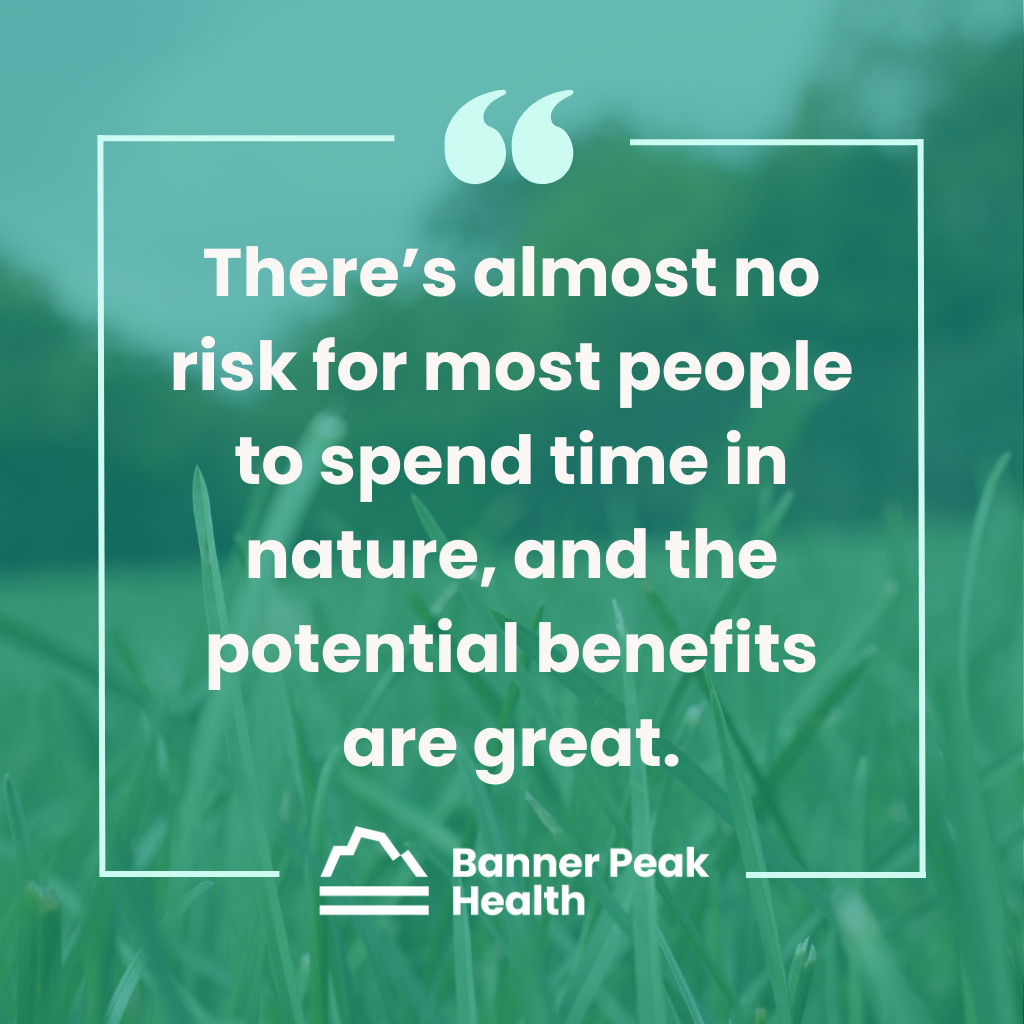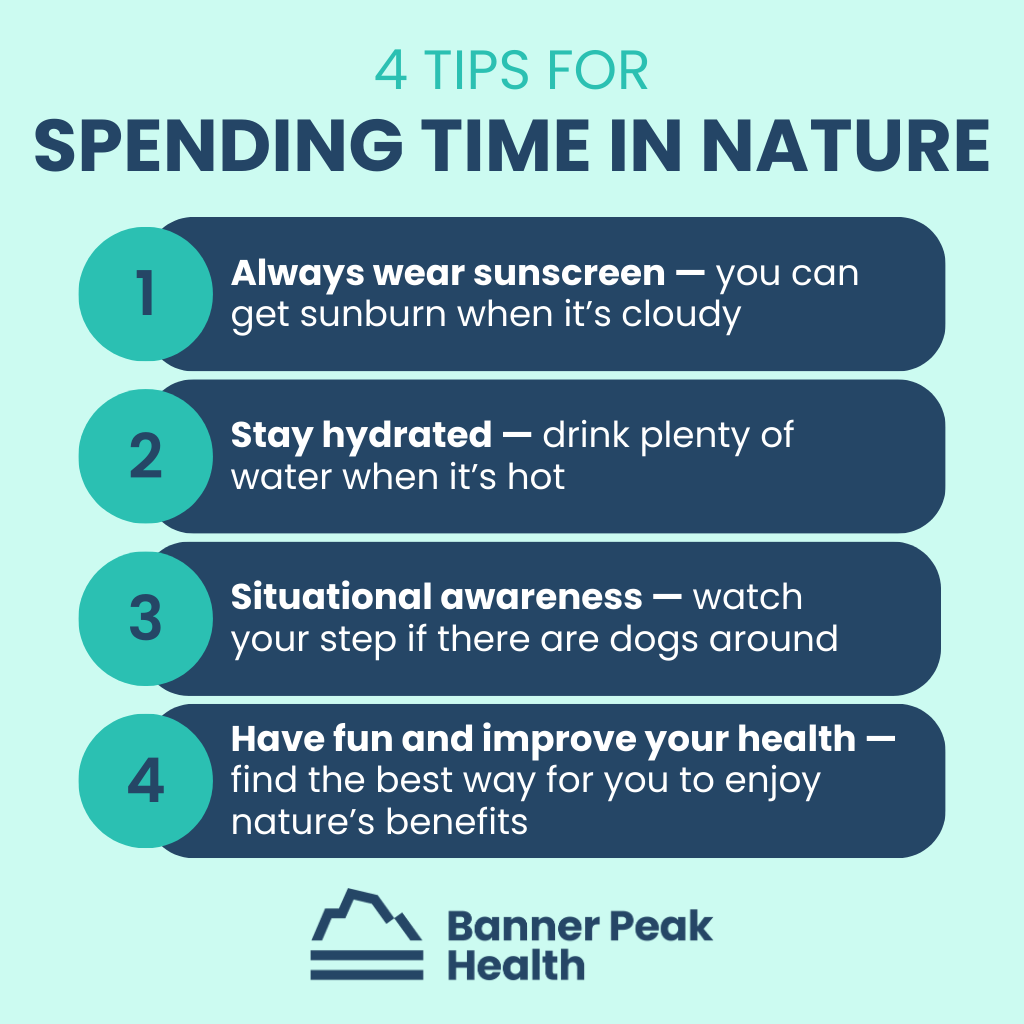Whether I’m biking, jogging, or walking my dog, exercising in nature has always been my go-to stress reliever.
Some people prefer to exercise in the morning, checking it off the list to get it out of the way. I enjoy exercising at the end of the day to unwind from work.
This wasn’t always the case. In college, I’d go on long runs in the park before stressful tests. I remember one test in organic chemistry. I hadn’t timed my run properly and literally had to run to the lecture hall and take the test in my running gear.
I pitied the students who had to sit next to sweaty me, but I aced the test, did well as a premed, and the rest is history.
My personal experience has convinced me of the tremendous value of both exposure to nature and exercise. Is there any scientific data to validate the benefits of exposure to nature?
What Science Says About the Benefits of Nature
Delving into the literature around the therapeutic benefits of nature exposure reveals a large body of evidence associating nature exposure with a wide range of benefits. These benefits include stress reduction, better sleep, less depression, better cognitive function, lower blood pressure, better immune function, better post-op recovery, and more.
However, as we’ve mentioned in previous blog posts, correlation doesn’t equal causation. For example, access to parks correlates with higher socioeconomic status, and the decision to visit a park correlates with a higher level of physical function.
Very few gold-standard randomized controlled trials have successfully isolated the intervention of exposure to nature. However, I did find one notable study.
The Experiment
In 2018, a group of researchers from the University of Pennsylvania worked with a nonprofit to explore the therapeutic impact of “greening.” Greening is the process of cleaning up an urban property and planting live plants to “green up” the space.
This experiment used 110 clusters containing 541 vacant lots in areas of lower socioeconomic status in the city of Philadelphia. These lots were often blighted with graffiti, abandoned cars, and garbage.
The experimental methodology was this:
- One-third of the lots were cleaned up, planted as green space, and fenced off.
- One-third of the lots were cleaned up and fenced off but had no additional greening.
- One-third of the lots were left untouched (control group).
The researchers identified 442 participants in the neighborhoods adjacent to these areas and performed a mental health questionnaire before the intervention and again 18 months later.
The researchers documented that the participants adjacent to the green space versus the control spaces experienced a 41.5% reduction in depression and a 62.8% reduction in feelings of worthlessness.
This study gives plausibility to the mechanisms of all other association trials. Since strictly randomized controlled trials are so difficult in this case, the fact that this one demonstrated that nature exposure could be beneficial lends credence to other studies.
The full health benefits of nature walks, mountain biking, swimming, jogging, and anything else we enjoy doing outdoors may not be completely documented, but they’re worth investigating.
Is Data Necessary?
As we’ve said in recent posts, when in doubt, it’s often best to calculate risk versus reward.
If a situation involves significant risk, we need ironclad data from reproducible, randomized controlled trials showing a benefit to warrant the risk.
Take chemotherapy, for example. It involves tremendous risk to the patient, so we rely on the decades of study available to show us the benefits of the treatment to weigh whether the risk is worth it. The answer depends on each individual and their unique situation.
However, nature exposure is at the opposite end of this spectrum. There’s almost no risk for most people to spend time in nature, and the potential benefits are great. Because of this, we don’t need stacks of data from decades of gold-standard studies.
Today’s Takeaways
We’ve explored the potential risks and benefits of exposure to nature and green spaces. It’s safe to say the benefits far outweigh the risks for almost everyone. To offset even minimal risk, remember these tips:
- Always wear sunscreen — you can get sunburned even when it’s cloudy.
- Stay hydrated — drink plenty of water when it’s hot.
- Maintain situational awareness — watch your step if there are dogs around.
- Have fun and improve your health — find the best way for you to enjoy nature’s benefits.

Barry Rotman, MD
For over 30 years in medicine, Dr. Rotman has dedicated himself to excellence. With patients’ health as his top priority, he opened his own concierge medical practice in 2007 to practice medicine in a way that lets him truly serve their best interests.





